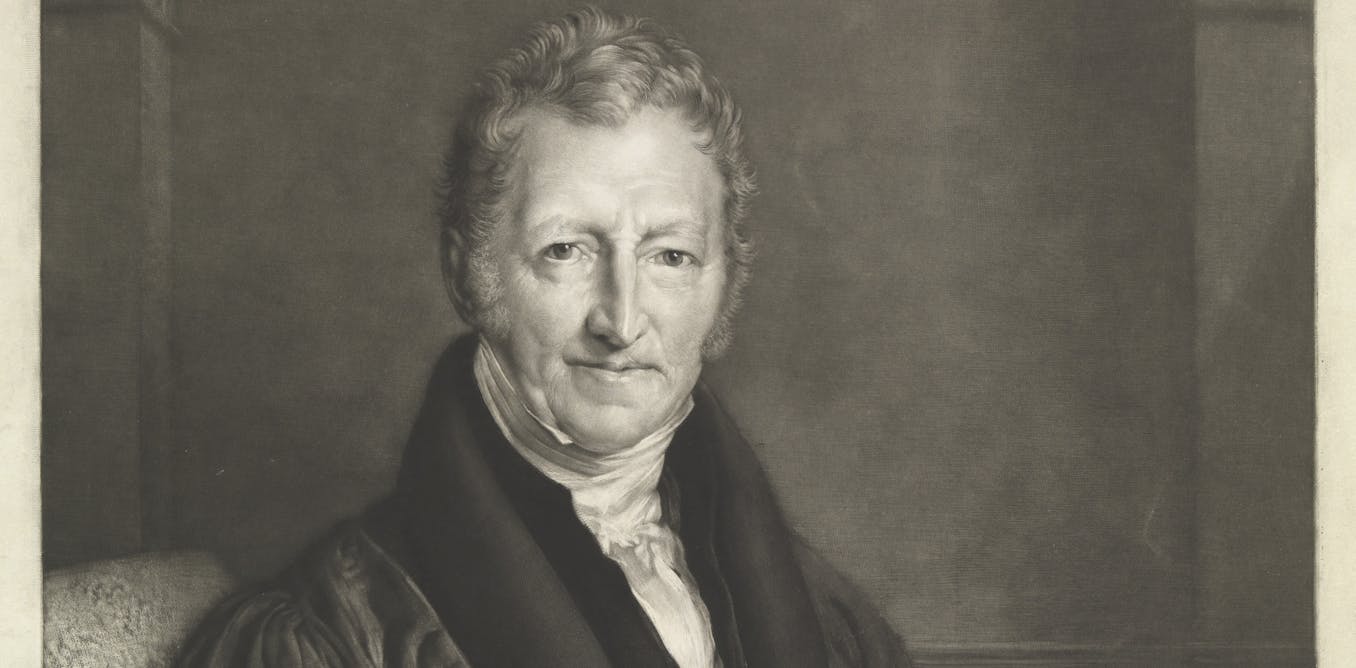
"No one uses "Malthusian" as a compliment. Since 1798, when the economist and cleric Thomas Malthus first published " An Essay on the Principles of Population," the "Malthusian" position - the idea that humans are subject to natural limits - has been vilified and scorned. Today, the term is lobbed at anyone who dares question the optimism of infinite progress. Unfortunately, almost everything most people think they know about Malthus is wrong."
"The story goes like this: Once upon a time, an English country parson came up with the idea that population increases at a "geometrical" rate, while food production increases at an "arithmetical" rate. That is, population doubles every 25 years, while crop yields increase much more slowly. Over time, such divergence must lead to catastrophe. But Malthus identified two factors that reduced reproduction and held off disaster: moral codes, or what he called "preventative checks," and "positive checks," such as extreme poverty, pollution, war, disease"
"As I discuss in my 2025 book " Impasse: Climate Change and the Limits of Progress," Malthus was an innovative and insightful thinker. Not only was he one of the founding figures of environmental economics, but he also turned out to be a prophetic critic of the belief that history tends toward human improvement, which we call progress."
The term "Malthusian" functions as a pejorative label applied to critics of limitless progress. Thomas Malthus proposed that population grows geometrically while food supply increases arithmetically, producing eventual scarcity. He identified preventative checks such as moral restraint and positive checks including poverty, war, disease and environmental degradation that limit reproduction. Common caricatures portray Malthus as punitive or mathematically inept, but he contributed to environmental economics and warned about limits to historical improvement. His upbringing and education among dissenting Protestants and radical thinkers influenced his skepticism about inevitable human progress.
Read at The Conversation
Unable to calculate read time
Collection
[
|
...
]